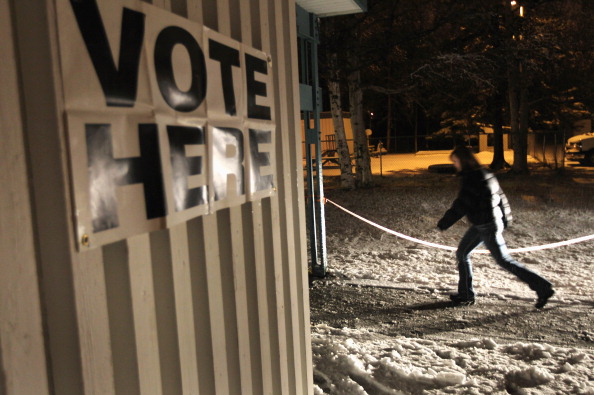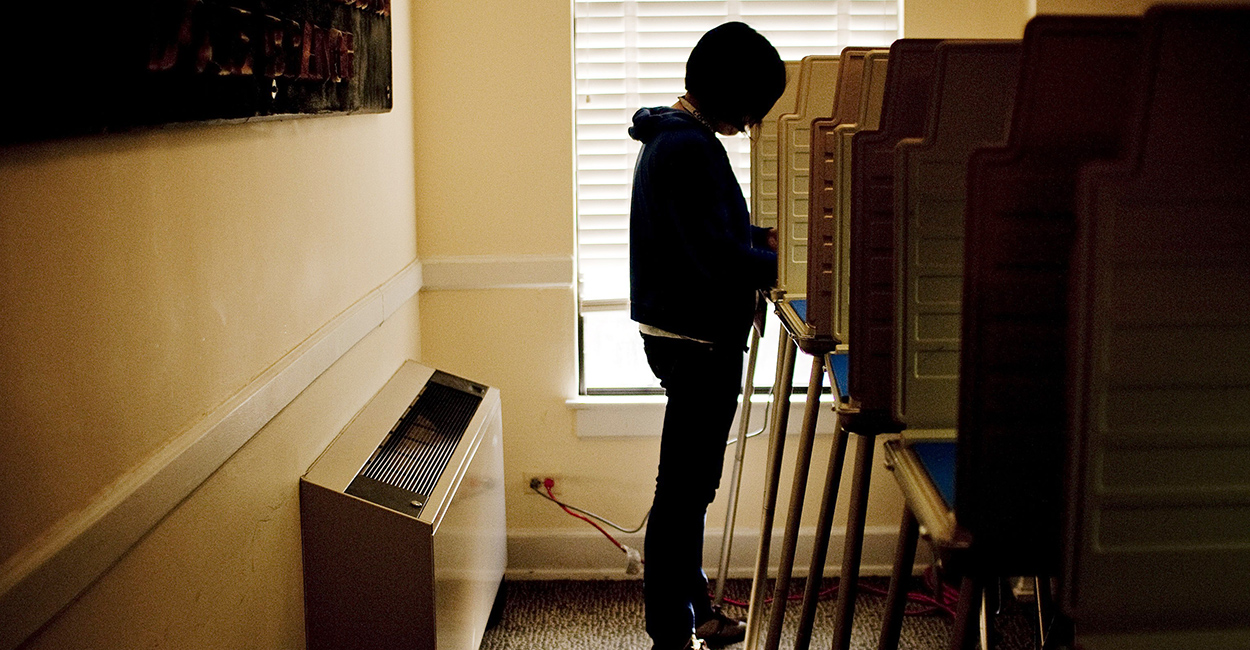On Tuesday, April 28, Texas Solicitor General Scott Keller will be up before a three-judge panel of the Fifth Circuit Court of Appeals again, his second appearance there in two weeks.
But this time, instead of arguing over the unconstitutionality of President Obama’s immigration amnesty plan, he will be arguing that the Texas voter ID law that was effective in the 2012, 2013 and 2014 state and federal elections is both constitutional and not a violation of the Voting Rights Act.
The Texas voter ID law was passed in 2011 and the state has gone through a long litigation fight with the U.S. Justice Department and a host of private plaintiffs, including advocacy organizations, over the law.
On Oct. 9, 2014, an injunction was issued by federal district court Judge Nelva Gonzales Ramos (an Obama appointee), who found that the law constituted a poll tax, was an unconstitutional burden on the right to vote, and violated the Voting Rights Act. She issued a final judgment against Texas on Oct. 11.
This despite the fact that Ramos admitted in her almost 150-page opinion that neither the Justice Department nor any of the other plaintiffs had been able to show “that any particular voter absolutely cannot get the necessary ID or vote by absentee ballot.”
Ramos issued an injunction against the law even though the Justice Department and the plaintiffs could not produce a single individual who had been or would be unable to vote because of the voter ID law.
In other words, Ramos issued an injunction against the law even though the Justice Department and the plaintiffs could not produce a single individual who had been or would be unable to vote because of the voter ID law.
And that was after Justice Department lawyers “crisscrossed Texas, traveling to homeless shelters with a microphone in hand, searching for voters ‘disenfranchised’” by the voter ID law according to the brief filed by Texas with the Fifth Circuit. The advocacy organizations in the case, including the NAACP and the League of United Latin American Citizens, “also searched the State for disenfranchised voters, but they could not identify any such voters.”

An Alaskan voter arrives to a polling station to cast her ballot before sunrise. (Photo: John Moore/Getty Images)
Ramos’s injunction, which was issued less than a month before the 2014 election, was thrown out by the Fifth Circuit Court of Appeals on Oct. 17 on an emergency appeal.
The court held that Ramos’s injunction “substantially disturbs the election process of the State of Texas just nine days before early voting begins.” It concluded that the injunction should be stayed while the appeal was pending because of the “value of preserving the status quo.” The U.S. Supreme Court refused to lift the stay.
The substantive merit of the Justice Department’s case and Ramos’s final judgment against the state is now before the Fifth Circuit.
In the brief filed by Texas, the state points out the numerous mistakes made by Ramos in her opinion. For example, when she found that the Texas voter ID law is an “unconstitutional burden” on the right to vote, she “ran roughshod over” the U.S. Supreme Court’s finding in Crawford v. Marion County in 2008 that Indiana’s voter ID law, which is analogous to the Texas law, was not a “substantial burden” on voters.
This is a particularly erroneous conclusion given that Texas will issue a free ID to anyone that doesn’t have one, and a birth certificate that is needed to obtain an ID only costs $2-3. Indiana charged $3-12 for a birth certificate in a similar process the U.S. Supreme Court found was constitutional. Thus, the Crawford decision also foreclosed Ramos’s specious conclusion that the Texas ID law is a poll tax.
A representative from the Texas secretary of state’s office testified that “there have been absolutely almost no phone calls, emails, problems related to lack of any ID.”
Ramos gave the Justice Department “unprecedented discovery into the office files, bill books, personal correspondence, official e-mails, home e-mails, and business e-mails” of the legislators who voted for the voter ID bill according to Texas.
That “fishing expedition” failed to turn up a single statement by any legislator of any discriminatory purpose in passing an ID requirement. Yet Ramos still found that Texas had an intent to discriminate.
Why? Because opponents of the bill said there couldn’t be any other reason to pass such a law, as Texas pointed out in its brief:
With no evidence of racial discrimination or disparate impact, the district relied entirely on weak and inconclusive circumstantial evidence – speculation by political opponents of the bill, legislative procedure indicative of nothing illicit, and sweeping generalizations about the bill’s ‘background.’
Ramos relied on an algorithm put forward by the Justice Department’s expert, Catalist LLC, a Democratic political data firm that represents liberal advocacy groups opposed to voter ID, to determine the supposed disparity of those Texans who don’t already have an ID in Texas. It was so unreliable it “predicted incorrectly the race of 6 of the 22 named plaintiffs” in the case.

A voter casts her ballot at a polling station in Oak Park, Ill. (Photo: Michal Czerwonka/Getty Images)
The Justice Department hired six experts at a cost of hundreds of thousands of dollars, but their predictions of large numbers of state residents without ID have proven to be untrue.
As a representative from the Texas secretary of state’s office testified, they get thousands of phone calls each month from voters and “there have been absolutely almost no phone calls, emails, problems related to lack of any ID.” There is no evidence that the ID requirement had any effect on the turnout of voters in the last three elections, either.
Unfortunately for Texas, despite the clearly flawed reasoning and conclusions of Judge Ramos in the district court decision, and the evidence of three elections that contradicts the invalid claims made by DOJ, the state may face a tough panel in the Fifth Circuit.
Hearing the case will be Chief Judge Carl Stewart, a Clinton appointee; Judge Catharina Haynes, a George W. Bush appointee; and Judge Nannette Brown, an Obama appointee to the Eastern District of Louisiana sitting by special designation on this case.
The three-judge panel should reverse the district court.
As Texas says in its brief, Judge Ramos “failed to apply the governing legal standard” and had “no basis to facially invalidate” the Texas voter ID law – which has been smoothly implemented in three elections without any of the problems Ramos, the Justice Department, and numerous advocacy groups predicted.































